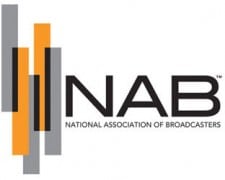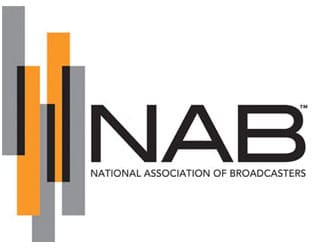 Here’s a letter to the FCC expressing NAB’s “procedural and substantive objections” to the Media Bureau’s announcement regarding new processing guidelines for proposed television mergers.
Here’s a letter to the FCC expressing NAB’s “procedural and substantive objections” to the Media Bureau’s announcement regarding new processing guidelines for proposed television mergers.
Dear Ms. Dortch: We write to express our objections to the Public Notice released by the Media Bureau on March 12, 2014, entitled Processing of Broadcast Television Applications Proposing Sharing Arrangements and Contingent Interests (“Public Notice”). Our objections are both procedural and substantive. First, the Public Notice is procedurally deficient. The Public Notice purports to declare new substantive requirements for the evaluation of certain broadcast television transactions, but was issued without the requisite notice and opportunity for comment. The Public Notice creates a new standard of review—essentially, a “strict scrutiny” standard—for transactions that involve sharing arrangements and contingent or other financial interests. Public Notice 2 (“[W]e have determined that proposed combinations of … sharing arrangements and contingent financial interests warrant careful scrutiny ….”); id. (“[T]he Bureau will closely scrutinize any [such] application”). The Public Notice also identifies circumstances that will draw particularly negative review under the newly-announced standard, such as situations where the broadcasters “share[] the same lending institution” and “a portion of the purchase price will be financed by a loan from that lending facility.” Id. This presupposes that “financial influence inheres in lending relationships,” id. (emphasis added) – a sphere of relationships into which the Commission’s attribution rules authorize no inquiry and thus is legally irrelevant. See 47 C.F.R. § 73.3555, Note 2.
Indeed, the new substantive standards for evaluating proposed transactions turn the Commission’s longstanding attribution regulations on their head. The current ownership attribution rules expressly provide that “holders of debt and instruments such as warrants, convertible debentures, options or other non-voting interests with rights of conversion to voting interests shall not be attributed unless and until conversion is effected.” 47 C.F.R. § 73.3555 Note 2e (emphasis added). Under the Bureau’s new standards, however, merely “[e]nter[ing] into an option, right of first refusal, put/call arrangement, or similar contingent interest, or a loan guarantee” will trigger stringent review and, ultimately, likely rejection of an application proposing a change of station ownership. Public Notice at 2 (emphasis added). The Public Notice is clearly designed to, and will for all practical purposes, exert strong pressure on applicants to withdraw existing applications that do not conform to these criteria and in the future only file ones that do. See Public Notice 3 (stating that “applicants must submit all . . . documentation . . . relevant to the Commission’s review . . . as described in this Public Notice” or “consideration of the application will be delayed”); see also Statement of William Lake, Chief, Media Bureau on Processing Guidance for Future Proposed Broadcast TV Transactions (suggesting that future parties can “simplify[]” review of their applications by accounting for the Public Notice “as they structure their deals,” and that “parties with pending applications” can “amend those applications . . . to simplify the review process”). “It cannot seriously be argued that this screening device does not create a strong incentive to meet [its] goals. . . . A station would be flatly imprudent to ignore any one of the factors it knows may trigger intense review.” Lutheran Church-Missouri Synod v. FCC, 141 F.3d 344, 353 (D.C. Cir. 1998). As the D.C. Circuit observed in another context, the Commission is “interested in results, not process, and is determined to get them.” MD/DC/DE Broadcasters Association v. FCC, 236 F.3d 13, 19 (D.C. Cir. 2001); see also id. (noting the FCC’s “long history” of “raised eyebrow regulation”) (citations and internal quotation marks omitted). Because these are substantive requirements that change existing law, not mere processing guidelines, they constitute legislative rules that can only be adopted pursuant to notice and comment. See 5 U.S.C. § 553(e); see also Appalachian Power Co. v. EPA, 208 F.3d 1015, 1024 (D.C. Cir. 2000) (“An agency may not escape . . . notice and comment . . . by labeling a major substantive legal addition to a rule a mere interpretation.”); Sprint Corp v. FCC, 315 F.3d 369, 374 (D.C. Cir. 2003) (explaining that “an amendment to a legislative rule must itself be legislative”). Moreover, as a result of these changes, transactions that comply in all pertinent respects with the Commission’s existing attribution rules will be subject to increased scrutiny and likely rejection under the revised public interest standard. This raises additional issues of fair notice, see Trinity Broadcasting of Fla. v. FCC, 211 F.3d 618 (D.C. Cir. 2000), and indeed the rationality of the Commission’s decision-making processes more generally, see Motor Vehicle Mfrs Ass’n v. State Farm Ins., 463 U.S. 29 (1983). In addition, the Public Notice was outside the scope of the Media Bureau’s delegated authority. Whatever one’s view on these issues, they clearly represent an important and “novel question[] of law, fact, or policy.” 47 C.F.R. § 0.283. For the last decade, the Commission has not considered these types of sharing arrangements to be attributable for purposes of the ownership rules, and indeed the Bureau has explicitly approved them with the Commission’s blessing. See, e.g., Applications for Consent to Transfer Control from Shareholders of Belo Corp. to Gannett Co., Inc., DA 13-2423, MB Docket No. 13-189 (rel. Dec. 20, 2013), available at http://transition.fcc.gov/Daily_Releases/Daily_Business/2013/db1220/DA-13-2423A1.pdf; Application for Assignment of License KZTV(TV), Corpus Christi, Texas, DA 10-495 (rel. March 26, 2010), available at http://hraunfoss.fcc.gov/edocs_public/attachmatch/DA-10-495A1.pdf. This sudden reversal in the Commission’s approach to the standard of review for the applications at issue and the factors that will trigger heightened scrutiny (and likely rejection) of those applications is plainly a “novel” one that implicates important legal and policy judgments. Any effort to use delegated authority to resolve these issues and thereby “avoid judicial review” through “a sort of administrative law shell game” is inappropriate and unacceptable. AT&T v. FCC, 978 F.2d 727, 731-32 (D.C. Cir. 1992). Second, the Public Notice suffers from grave substantive flaws. The Bureau’s singling out of a class of applications for what is plainly intended to be “fatal in fact” review amounts to a categorical presumption (and practical prohibition) against such transactions and a dramatic shift in the Commission’s existing policies. Many of these transactions will present important public benefits by allowing small or mid-size struggling stations—including minority-owned stations—to survive and offer valued local services in today’s intensely competitive media marketplace, thus promoting the Commission’s asserted goals of competition, localism, and diversity. The newly minted presumption against such transactions thus undermines these longstanding Commission goals and departs from established policy upon which licensees have relied, and does so without reasoned explanation. Cf. FCC v. Fox Television Stations, 556 U.S. 502, 515 (2009) (agency must provide reasoned explanation when “new policy rests upon factual findings that contradict those which underlay its prior policy; or when its prior policy has engendered serious reliance interests”). In short, the Bureau’s failure to acknowledge the potential benefits of sharing arrangements with contingent financial interests and its conclusion that they will very rarely satisfy the public interest standard are arbitrary and capricious. The Bureau’s determination is also deficient because it is improperly based on speculation and conjecture, rather than concrete evidence of a problem that requires resolution. See ALLTEL Corp. v. FCC, 838 F.2d 551, 561 (D.C. Cir. 1988) (“[A] regulation perfectly reasonable and appropriate in the face of a given problem may be highly capricious if that problem does not exist.” (citations and internal quotation marks omitted)). The Bureau’s invocation of a single 2002 decision, see Public Notice 1 & n.2, and its unsubstantiated speculation that “a broadcaster that has entered into a sharing arrangement with another same-market station in which it also has a contingent financial interest . . . may obtain a degree of operational and financial influence that deprives the licensee of the second station of its economic incentive to control programming” or that “an assignable option to purchase a station at less than fair market value may counter any incentive the licensee has to increase the value of the station” are insufficient to justify a categorical presumption against such transactions, Public Notice 2 (emphases added). The Bureau must “provide more than its own broadly stated fears to justify” its radical change of policy. Cincinnati Bell Telephone Co. v. FCC, 69 F.3d 752, 764 (6th Cir. 1995). Finally, the Public Notice impermissibly prejudges some of the very issues regarding shared service agreements that will apparently be presented in the Commission’s Further Notice of Proposed Rulemaking. See FCC Adopts TV JSA Attribution Rules, Begins 2014 Media Ownership Quadrennial Review, and Proposes Benefits for Small Business Owners, News Release (March 31, 2014), available at http://www.fcc.gov/document/fcc-adopts-jsa-rule-and-begins-2014-media-ownership-quadrennial-review. In all of these respects, the Public Notice violates the Administrative Procedure Act. It is an abuse of the Bureau’s delegated authority and is unreasoned, premature, and inconsistent with longstanding Commission policies, objectives, and existing regulations. Accordingly, we encourage the Bureau to withdraw the Public Notice and eliminate the improper pressure on— and de facto rule against—the broadcast transactions at issue.
Sincerely yours, Jane E. Mago Executive Vice President and General Counsel cc: William Lake, Maria Kirby, Adonis Hoffman, Clint Odom, Matthew Berry, Courtney Reinhard”

RBR-TVBR asked Francisco Montero, Managing Partner, Fletcher, Heald & Hildreth, P.L.C, what he thought about the letter, and what may come next: “Having rammed through the change in attribution for TV JSAs, the battlefield has now moved to the details of how the new guidelines are to be defined and implemented, and this is the first salvo in that next battle. The FCC has come out with a Public Notice entitled Processing of Broadcast Television Applications Proposing Sharing Arrangements and Contingent Interests which proposes methods of evaluating sharing and contingent interests between broadcasters. Interestingly, the Public Notice states that certain indicia would trigger a strict (and highly skeptical) scrutiny of such relationships, such as “sharing the same lending institution” and where “a portion of the purchase price will be financed by a loan from that lending facility” even though such circumstances do not themselves trigger attribution. The FCC is essentially saying that such facts presumably smell fishy. Moreover, the NAB’s letter points out that the new standards call for heightened negative scrutiny if the parties enter “into an option, right of first refusal, put/call arrangement, or similar contingent interest, or a loan guarantee.” As the letter notes, the current attribution rules provide that contingent interests, such as “debt,…warrants, convertible debentures, options or other non-voting interests with rights of conversion to voting interests shall not be attributed unless and until conversion is effected.” (emphasis added) While these guidelines do not make such contingent interests attributable, they do provide that their mere presence should be analyzed critically. Such a change in how these contingent interests are evaluated and interpreted by the FCC could impact other areas beyond TV JSA attribution, such as access to capital where lenders or passive investors do not wish to become subject to FCC regulation and reporting through attribution, or foreign ownership where debt and contingent interests are currently not attributable. Beyond that, the NAB’s letter proposes that such new guidelines are too novel to be delegated to the Bureau to avoid judicial review of FCC decisions. In short, the battle over the FCC’s new JSA Guidelines may have many battlefields.”





